PTCOG-AO 2022
Rejoining PTCOG-AO, Building Bridges, Improving Qualities
December 2-3, 2022 | Venue : Jeju ICC, Jeju, Korea
Speakers
Scientific Session 1 - Current status of particle therapy in Asia-Oceania
Invited Speaker
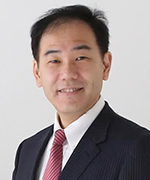
Tatsuya Ohno
Gunma university / Japan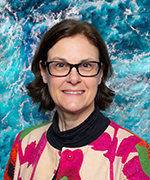
Verity Ahern
Crown Princess Mary Cancer Centre / Austraila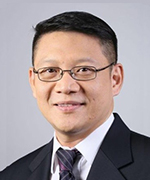
Michael Wang
National Cancer Centre / Singapore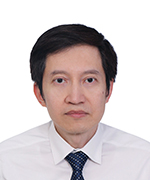
Chonlakiet Khorprasert
President of Thai Association Radiation Oncology / Thailand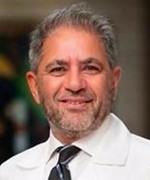
Rakesh Jalali
Apollo Proton Cancer Centre (APCC) / India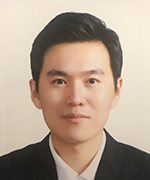
Sung Uk Lee
National Cancer Center / Korea
Liesbeth Boersma
Maastricht University Medical Centre+, Maastricht / Netherlands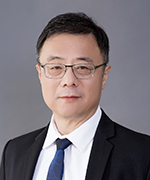
Zuofeng Li
Guangzhou Concord Cancer Center / China
Alina Alua
National Research Oncology Center / Kazakhstan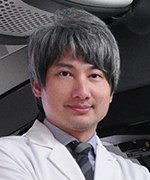
Hsin-Lun Darren Lee
Taipei Medical University Hospital / Taiwan
-
Tatsuya Ohno
Gunma university Japan
Dr. Ohno is a radiation oncologist, Professor and Chair of Department of Radiation Oncology of Gunma University, and Director of Gunma University Heavy Ion Medical Center, Japan. His research has focused on carbon-ion radiotherapy for various cancer sites. He is now a core member of the Japan Carbon-ion Radiation Oncology Study Group (J-CROS) since 2014 and the Course Director on International Training Course on Carbon-ion Radiotherapy hosted by NIRS and Gunma University since 2012. Dr. Ohno has served as a member of Board of Directors in Japanese Society for Radiation Oncology (JASTRO), Japan Society for Gynecologic Oncology (JSGO), and Japanese Board for Medical Physicist Qualification (JBMP). He also has served a chair of gynecologic tumor committee of the Japan Radiation Oncology Study Group (JROSG) since 2017. He is a core member of the Radiation Oncology Project of the Forum for Nuclear Cooperation in Asia (FNCA) for 20 years supported by Japanese government. In this project, multi-center clinical trials on cervical cancer, nasopharyngeal cancer, and breast cancer have been performed among 11 Asian countries: Bangladesh, China, Indonesia, Japan, Korea, Kazakhstan, Malaysia, Thailand, The Philippines, Mongolia, and Viet Nam.

-
Verity Ahern
Crown Princess Mary Cancer Centre Austraila
Verity Ahern is the Clinical Co-chair of the National Particle Treatment and Research Centre on the Westmead precinct (Sydney) and has been the Director of the Radiation Oncology Network, Western Sydney Local Health District (Westmead and Blacktown Hospitals) since 2014, and a Clinical Associate Professor at the University of Sydney since 2015.
She still enjoys practicing as a radiation oncologist in the fields of breast cancer and paediatric radiation therapy. She takes pride in creating opportunities for early career radiation oncologists, as well as radiation therapists and medical physicists, while remaining focussed on caring for cancer patients.

-
Michael Wang
National Cancer Centre Singapore
- MBBS, FRCR, FAMS, GDip HML
- Chair
- Division of Radiation Oncology
- National Cancer Centre Singapore
Dr Michael Wang is currently the Chair of the Division of Radiation Oncology, National Cancer Centre Singapore (NCCS) and the Lead Program Director of the NCCS Proton Therapy Program.
After obtaining his medical degree at the National University of Singapore, he went on to complete his training in Clinical Oncology at the Middlesex Hospital, UCLH in 2002. This was followed by a fellowship in Gastrointestinal Radiation Oncology at the Peter MacCallum Cancer Centre in 2006 and a UICC ICRETT Fellowship in Tomotherapy at Yonsei Cancer Centre in 2010. He currently leads the GI Radiation Oncology Team and has a keen interest in treating GI malignancies, especially Hepatocellular Carcinoma (HCC), with advanced radiation techniques. His other subspecialty interests are Urologic Oncology and advanced technologies in Radiation Oncology.
As the Lead Program Director of the NCCS Proton Therapy Program, he is responsible for the project management, training and clinical services planning. The facility is expected to start operations in early 2023. He is also a member of the MOH Proton Beam Therapy Advisory Committee as well as National Advisory Committee on Cancer.
Dr Wang was also a past-Chair of the Chapter of Radiation Oncologists, College of Radiologists Singapore and a former President of the Singapore Radiological Society.

-
Chonlakiet Khorprasert
President of Thai Association Radiation Oncolog Thailand
CHONLAKIET KHORPRASERT MD.
- Hospital Address: Division of Radiation Oncology, Faculty of Medicine, Chulalongkorn University, Bangkok, 10330, Thailand
- E-mail : chonlakiet@gmail.com chonlakiet.k@chula.ac.th
ACADEMIC EXPERIENCE:
- 1995- 1997 Lecturer, Staff Member of Division of Radiation Oncology, Faculty of Medicine, Chulalongkorn University, Bangkok, Thailand.
- 1997- Present Assistant Professor, Division of Radiation Oncology, Faculty of Medicine, Chulalongkorn University, Thailand
ADMINISTRATIVE EXPERIENCE:
- 2021- present : President, Thai Association of Radiation Oncology
- 2021- present : Director, Her Royal Highness Princess Maha Chakri Sirindhorn Proton Center
- 2019- 2021: Assistant Director, Faculty of Medicine, Chulalongkorn University
- 2015-2019: Assistant Director, King Chulalongkorn Memorial Hospital
- 2011- 2020: Vice President, Thai Society of Therapeutic Radiology and Oncology
- 2010- 2014: Chief, Division of Radiation Oncology, Chulalonrkorn University, Thailand

-
Rakesh Jalali
Apollo Proton Cancer Centre (APCC) India
- Medical Director, Apollo Proton Cancer Centre
- Professor and Head of Radiation Oncology
- Lead, Neuro-Oncology Cancer Management Team
- Address (work): Apollo Proton Cancer Centre 100 Feet Road, Taramani, Chennai-600 096
- Email: rjalali@apollohospitals.com
- Website: www.apolloproton.com
Professor Rakesh Jalali is the Medical Director of India’s and South Asia’s first proton therapy facility at the advanced comprehensive cancer centre, the Apollo Proton Cancer Centre (APCC), leading its clinical care administration. His concept of site-specific cancer care with dedicated Cancer Management Teams (CMT) has been successfully implemented in the centre and is being replicated across all other centres of the Apollo Hospitals group, one of the premier oncology networks in India/region known for its excellence in clinical care and infrastructure. He has successfully led the clinical initiation of India and South-Asia’s first proton therapy programme and is considered as a leading expert in the field in the region. Before joining Apollo, Dr.Jalali spent 18 long fruitful years at Tata Memorial Hospital, Mumbai where he led the Neuro Oncology Group as the finest such unit in India.
Prof Jalali’s numerous research interests and publications over the years have focused on generating quality evidence for high-precision techniques of radiotherapy, image guided pencil beam scanning proton therapy, late-term toxicities, biological imaging, molecular prediction and clinical evaluation of new agents in neurooncology, several patient reported outcome measures and quality of life issues in neuro oncology practice in the region along with novel insights in long-term cancer survivorship. He was also instrumental in establishing the premier neuro oncology society, the Indian Society of Neuro-Oncology (ISNO) in 2008 serving as its founding general secretary, then its President and now chairing its senior advisory council. A key opinion leader in the field of neuro-oncology, he helped formulate several treatment guidelines for evidence based contemporary management of brain tumours such as medulloblastomas, WHO classification etc, which are being followed across the region and beyond. He has led and mentored various cancer initiatives globally including in Asia-Pacific and African regions. He is also widely known for his teaching and providing expert guidance to various national and international scientific meetings and professional societies.
Prof Jalali is also well-known for his commitment to promoting equitable cancer care for patient populations from diverse backgrounds. He was instrumental in shaping up the ‘Brain Tumour Foundation of India’, an internationally recognized charity dedicated to the welfare of the patients with brain tumours and their families, as well as conducting ‘Patient support group’ meetings for cancer patients and their caregivers.

-
Sung Uk Lee
National Cancer Cente Korea
- Full Name (First Name, Last Name): Sung Uk Lee
- Present Position: Clinical staff, Department of Radiation Oncology, National Cancer Center
- Academic or Medical Associations Position: None
- Educational background & professional experience (in sequence of the latest year):
Educational
- 2015-Present M.Sc. & Ph.D., Graduate School of Medicine, Seoul National University, South Korea
- 2005-2011 M.D., College of Medicine, Dong-A University, South Korea
Professional
- 2022-Present Clinical staff, Department of Radiation Oncology, National Cancer
- 2019-2022 Clinical fellow, Department of Radiation Oncology, National Cancer
- 2012-2016 Medical resident, Department of Radiation Oncology, National Cancer
- 2011-2012 Medical intern, Seoul National University Hospital
Research Interests
- Radiotherapy, Proton beam therapy, Urologic cancer, Head and neck cancer, Central nervous system tumor

-
Liesbeth Boersma
Maastricht University Medical Centre+, Maastricht Netherlands
Liesbeth Boersma is a Professor in Radiation Oncology, specifically for Breast Cancer, at the University Maastricht in The Netherlands. I have been chair of the Dutch Platform for Proton Therapy since 2018. In that function, I have been involved in almost all indication protocols for proton therapy in The Netherlands. My research interest deals with evaluating the effects of protontherapy, especially in breast cancer, individualizing radiotherapy indications for breast cancer, shared decision making, and innovation implementation.

-
Zuofeng Li
Guangzhou Concord Cancer Center China
Dr. Li is the Physics Director at Guangzhou Concord Cancer Center, in Guangzhou, China, where a Varian ProBeam system as well as an IBA Proteus-Plus system are being commissioned.
Dr. Li graduated from Washington University in St. Louis, Missouri, USA, with a Doctor of Science degree in Systems Science and Mathematics. He completed post-doctoral research and clinical medical physics residency training at Washington University School of Medicine, and has since worked in radiotherapy physics at Washington University and University of Florida over the years, before resigning from the positions of Professor of Radiation Oncology at University of Florida, and Physics Director of University of Florida Health Proton Therapy Institute in 2020.
Over the years, Dr. Li had served in various leadership positions of the AAPM and PTCOG, among others. He is an author of several AAPM task group reports. He was awarded a Fellow of the AAPM in 2012.
Dr. Li is an author of more than 150 peer-reviewed papers and book chapters. He serves on the editorial boards of multiple professional magazines, including Medical Physics and International Journal of Radiation Oncology Biology and Physics. He served as grant reviewer for government agencies in the US, Germany, The Netherlands, Switzerland, and China.

-
Alina Alua
National Research Oncology Center Kazakhstan
Education
- Sep 2011 - Jun 2016 Bachelor of Science degree in "Nuclear Physics". L.N.Gumilyov Eurasian National University, Astana Faculty of Physics and Technology. Full-time education.
- Sep 2017 - Jun 2019 Master's degree of the specialty "Nuclear physics".L.N.Gumilyov Eurasian National University, Astana Faculty of Physics and Technology. Full-time education.
- Sep 2020 - Present PhD of the specialty "Nuclear physics". L.N.Gumilyov Eurasian National University, Astana Faculty of Physics and Technology. Full-time education.
Professional
- Jan 2012 - May 2012 Member of the organization's service. Alliance of Students of Kazakhstan, Astana
- Sep 2012 - Dec 2012 Chairman of the Information Committee L. N. Gumilyov ENU Youth Policy Center, Astana
- Jan 2013 - Jun 2013 Event-manager Bravo Media Group, Astana
- Sep 2015 - May 2019 Junior Researcher Astana Branch of the Institute of Nuclear Physics of the Republic of Kazakhstan. Laboratory of Solid State Physics
- Nov 2019 - Jun 2020 Chief Specialist National Research Oncology Center, Astana Department of Implementation of Innovative Medical Technologies
- Nov 2020 - Present Chief Medical Physicist National Research Oncology Center, Astana Department of Radiation Oncology and Nuclear Medicine Implementation
Certificates
- Dec 2021 Pharmaceutical quality system: GMP (Good Manufacturing Practices, Good Manufacturing Practices) in the production of radiopharmaceutical medicines
Internships
- Apr 2019 - Apr 2019 Medical physicist Research Institute of Clinical Medicine, Tbilisi, Georgia Radiation therapy Edge, Tomotherapy, Brachytherapy
- Jun 2021 - Jun 2021 Medical physicist National Cancer Center, Goyang, South Korea Proton therapy in oncology
- Apr 2022 - May 2022 Medical physicist Center for Nuclear Medicine and Oncology, Semey Technical aspects of radiation therapy on a medical linear accelerator.
Courses
- May 2021 ESTRO - Comprehensive quality management in radiotherapy.Improving radiotherapy methods for advanced radiotherapy technologies, including quality assurance and quality control.
- May 2022 IAEA Evidence-based radiation oncology
- May 2022 IAEA Positioning and immobilization for radiation therapy
- Jun 2022 IAEA Physics for modern radiation therapy

-
Hsin-Lun Darren Lee
Taipei Medical University Hospital Taiwan
Current Position:
- Director and Attending Physician, Department of Radiation Oncology, Taipei Medical University Hospital
- Deputy Director, TMU Proton Center, Taipei Medical University Hospital
- Assistant Professor, Department of Radiology, School of Medicine, College of Medicine, Taipei Medical University
- Assistant Professor, The Ph.D. Program for Translational Medicine, College of Medical Science and Technology, Taipei Medical University and Academia Sinica
- Member of Particle Therapy Committee, Taiwan Society for Therapeutic Radiology and Oncology
Education:
- M.D., School of Medicine, Taipei Medical University (2000.09–2007.06)
- Ph.D., The Ph.D. Program for Translational Medicine, College of Medical Science and Technology, Taipei Medical University and Academia Sinica (2014.09–2020.01)
Professional Experience:
- 2008.09–2012.10 Resident training, Department of Radiation Oncology, Taipei Medical University Hospital and Wan Fang Hospital, Taipei Medical University, Taiwan
- 2012.11–2015.06 Attending Physician, Department of Radiation Oncology, Wan Fang Hospital, Taipei Medical University, Taiwan
- 2013.04–2014.09 Attending Physician, Department of Radiation Oncology, Landseed International Hospital, Taiwan
- 2014.04–present Attending Physician, Taipei Cancer Center, Taipei Medical University Hospital, Taipei Medical University, Taiwan
- 2015.07–present Attending Physician, Department of Radiation Oncology, Taipei Medical University Hospital, Taipei Medical University, Taiwan
- 2019.02–present Consultant Physician, Childhood Cancer Foundation of R.O.C.
- 2019.08–present Director, Department of Radiation Oncology, Taipei Medical University Hospital, Taipei Medical University, Taiwan
- 2020.02–present Postdoctoral Research Fellow, Genomics Research Center, Academia Sinica, Taiwan
- 2022.07–present Deputy Director, TMU Proton Center, Taipei Medical University Hospital
Professional Membership:
- Membership of Taiwan Society for Therapeutic Radiology and Oncology
- International Membership of American Society for Radiation Oncology
- Membership of Taiwan Society of Neutron Capture Therapy
- Membership of Taiwan Precision Medicine Society
- Membership of Taiwan Lung Cancer Society
- Membership of Taiwan Association for the Study of Lung Cancer
- Membership of Taiwan Pediatric Brain Tumor Consortium
